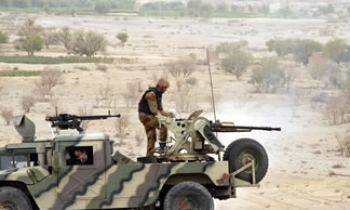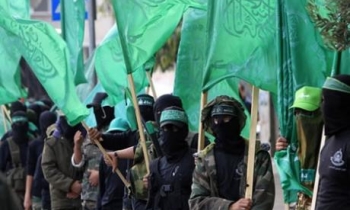Tamil journalist JS Tissainayagam has been sentenced to 20 years hard labour on charges of supporting terrorism and inciting racial hatred, becoming the first journalist to be convicted under Sri Lanka's draconian anti-terrorism law. An English-language columnist for the Sri Lankan Sunday Times and editor of the news website OutreachSL, Tissainayagam was arrested on March 7, 2008.
He spent five months in prison without charge before his indictment in August 2008 for promoting terrorism through the magazine Northeastern Monthly, which he briefly published in 2006. The magazine criticised the government's role in the war against the Liberation Tigers of Tamil Eelam (LTTE) and accused authorities of withholding food and other essential items from Tamil-majority areas.
On August 31, a High Court judge ruled that Tissainayagam's articles violated the law because they were aimed at creating "communal disharmony." The court also found that he had received money from the LTTE to fund his website, but Reporters sans Frontières (RSF) has established that the site was funded by a German aid project.
However, defence lawyers said there was no evidence of attempts by him to stir up religious, racial or regional conflict. He was being accused only because he is a Tamil, they said, and because of his criticism of government and state security forces. The charges against Tissainayagam and two colleagues, Jesiharan and Valarmathi, were laid under the PTA, a draconian and "temporary law" that has remained on Sri Lanka's statute books since it was introduced in 1979.
"The imposition of this extremely severe sentence on Tissainayagam suggests that some Sri Lanka judges confuse justice with revenge," RSF said. "With the help of confessions extracted by force and information that was false or distorted, the court has used an anti-terrorism law that was intended for terrorists, not for journalists and human rights activists."
According to the International Federation of Journalists (IFJ), which has been campaigning tirelessly for his release, Tissainayagam was repeatedly tortured and denied medical treatment while in prison.
"This man has been victimised for no more than holding the Government to account and giving voice to legitimate if critical opinion," IFJ General Secretary Aidan White said. "The sentence is disproportionate, brutal and inhumane and is a chilling reminder of how dangerous Sri Lanka has become for independent journalists."
Despite the end of the war, the Sri Lankan state continues to attack journalists who do not support its policies.
According to the International Press Institute (IPI), 12 journalists have been killed in Sri Lanka since 2006, and many others have been harassed, threatened and arrested. RSF has reported that Sri Lanka is one of the worst-hit countries in the world when it comes to the kidnap, arrest and disappearance of journalists.
CPJ announced that it will honour Tissainayagam with a 2009 International Press Freedom Award. Global Media Forum and RSF have already announced that Tissainayagam will be the first winner of the Peter Mackler Prize, a newly-created award for journalists who display great courage and professional integrity in countries where press freedom is not respected.
The prize will be awarded at a ceremony presided over by Washington Post executive editor Marcus Brauchli at the National Press Club in Washington on 2 October. The award honours the memory of veteran Agence France-Presse (AFP) reporter and editor Peter Mackler, who died last year.
"We are announcing this award to highlight the depth of outrage at this unjust sentence," said CPJ Executive Director Joel Simon. "Its harshness and the retroactive nature of the charges reflect vindictiveness and intolerance. We are calling today for Tissainayagam's release—an appeal we plan to repeat at our awards ceremony, when the world's leading journalists gather to demand press freedom for all of our colleagues."
A CPJ special report, "Failure to Investigate," chronicles some of the growing incidents of attacks on journalists in Sri Lanka, including circumstances surrounding the murder of outspoken editor Lasantha Wickramatunga in January 2009.









